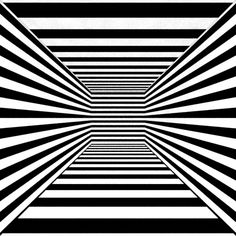|
(2017
final exam assignment) Model Student Midterm answers 2017 (Index) Essay 3: Web Highlights |
 |
Laura Wilson
The High in the Low: Highlights of the High and Low Tech
I found myself interested in the High and Low Tech scenarios we studied
belonging to Literature of the Future. I was drawn to how they seemed to
intermingle and show up in the others story. It seemed like you can’t have one
without the other. So, for my web highlights essay I wanted to seek out other
students work on the High and Low Tech to gain some different perspectives on
the topic.
The first essay I found that covered these topics was Timothy Morrow’s
paper Whether High or Low: Humans will Adapt. I had actually read another
of Morrow’s papers for my midterm, so I knew him to be a good writer. I also
found the theme of his essay to be interesting. Adaptation is certainly a form
of evolution, so I definitely learned something by harkening it back to one of
the Literature of the Future narratives, but also the struggle to do was I
thought was a fascinating choice of topic. Morrow discusses Low Tech scenarios
in relation to adaptation in Octavia Butler’s Speech Sounds, “In the same
way that Low Tech Science Fiction is about human attributes and virtue rather
than flashy technology, “Speech Sounds” depicts Rye as a survivor who adapts
adequately to her new world environment.” (Morrow). I found I agreed with this
point of view, that Low Tech is more closely tied with virtue and humanity,
which is something I didn’t pick up on in class.
Adria Weger had a similar view of in her analysis of House of Bones,
“This tribe is the most advanced for the time they live in. By blending
high-tech and low-tech in this story, Silverberg is able to relate a society
millions of years old to something recognizable today” (Weger). I appreciated
that she commented on how combining High Tech and Low Tech makes the scenario
more relatable to the reader. Out of all the essays I looked at, Weger had the
most interesting use of literary elements. She breaks down William Gibson’s
Hinterlands by commenting on how he “uses metaphor to explain high-tech
scenes with low-tech feelings” (Weger) and creates her own allegory at the
beginning of her paper. She compares the use of digital tools to accomplish
something tangible in the real world, such as gardening, to the intermingling of
High and Low Tech in Science Fiction Literature. This was an excellent example
of bringing in world experience to enhance an essay.
I found another excellent essay in Melissa Holesovsky’s 2015 essay,
Tech Teams: High and Low. The draw of this particular paper was the
admirable cohesiveness, and the exploration of how High and Low Tech appeal to
the reader in different ways. This quote from her conclusion I thought was
particularly strong, and I thought provided a different perspective on the
benefits of combining the two scenarios, “While there are narratives of strictly
high tech or low tech appeal, combining the two creates a dynamic duo and
encourages wider reading removing the narrative from sub-genre isolation.”
(Holesovsky). By combining the High and Low Tech scenarios the author opens
their story up to a whole new audience, who may have been put off had it
strictly explored one scenario.
The final submission I mined for ideas was Last Traces of Humanity
by Abel Hernandez in 2016. I don’t know that I necessary agree with his cynical
view on humanity expressed in the conclusion, “Humans are becoming less human as
the years come and go” (Hernandez), but I did agree that the level technology
has taken over our lives is a little alarming. When was the last time you saw
people out to eat and they didn’t check their phones? I also found useful his
analysis of motifs and symbols evident in the texts he wrote about. For
Drapes and Folds he commented “fabric as a symbol for human identity”
(Hernandez), and in The Onion and I he claimed the onions as a “motif
that connects people back to nature” (Hernandez). One thing I noticed in all of
the motifs he brings up are that they all symbolic of a return to Low Tech ways,
which reminded me of Weger’s views on the blending of High and Low Tech explored
earlier.





